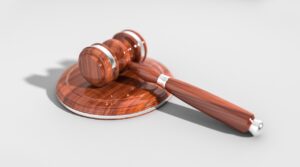Car accidents can be overwhelming, even in minor scenarios. Whether it’s dealing with the initial shock or navigating the claims process, knowing what to do after an accident can make all the difference. This guide breaks everything down, step by step, so you’ll feel prepared and confident if you ever find yourself in this situation.
Stay Calm and Assess the Situation
The first moments after an accident are crucial. While emotions might run high, staying calm is key. Pull your vehicle to a safe spot if possible, turn on your hazard lights, and check for injuries. If anyone is hurt, call emergency services immediately. Safety always comes first.
Should You Call the Police?
In many cases, yes. Even for minor accidents, a police report can serve as valuable documentation for your claim. In some areas, reporting is legally required, especially if there are injuries or significant damage. When in doubt, make the call.
Exchange Information with the Other Driver
Gathering the right information at the scene is essential for a smooth claims process. Here’s what you should collect:
- Driver’s name and contact details – Essential for follow-up communication.
- License plate number – Helps identify the vehicle involved.
- Insurance information – Policy number and provider name are critical.
- Vehicle details – Make, model, and color.
- Witness contact info – If anyone saw what happened, their account can strengthen your claim.
Avoid discussing fault or apologizing at this stage. Stick to factual details only.
Document the Scene
Take photos or videos of the accident site, as these will support your claim. Focus on:
- Vehicle damage from multiple angles.
- The surrounding area, including traffic signs, signals, or road conditions.
- Any visible injuries sustained.
This evidence provides clarity and minimizes disputes during the claims process.
Consider Contacting a Personal Injury Lawyer
If you or anyone involved in the accident has suffered injuries, consulting a personal injury lawyer like Steven C Toups could be beneficial. They specialize in helping individuals navigate complex legal matters and ensure fair compensation for medical expenses, lost wages, and other damages.
When Should You Call a Lawyer?
It’s worth reaching out to a lawyer in situations such as:
- Serious injuries – When injuries result in significant medical bills or long-term effects.
- Disputed fault – If there’s disagreement over who caused the accident.
- Insurance company disputes – When your claim is denied or the settlement offer seems too low.
- Uninsured drivers – If the other party doesn’t have coverage or sufficient insurance.
How a Lawyer Can Help
A personal injury lawyer will guide you through the legal process, negotiate with insurance companies on your behalf, and gather evidence to strengthen your case. Many lawyers offer free consultations, so you can explore your options without any upfront commitment.
Seeking legal advice early can provide peace of mind and protect your rights as you move forward.
Notify Your Insurance Company
Contact your insurer as soon as possible to report the accident. Many providers have mobile apps or 24/7 hotlines for quick communication. Be ready to provide all the details you gathered, including the police report number if applicable.
What to Expect During the Claims Process
Your insurer will likely assign an adjuster to investigate the incident. They’ll review the evidence, assess damages, and determine how much coverage applies. Be responsive and provide any additional information they request promptly.
Understand Your Policy Coverage
Car insurance policies vary, so it’s essential to know what yours covers. Standard components include:
- Liability coverage – Covers damages to the other party if you’re at fault.
- Collision coverage – Helps repair your vehicle, regardless of fault.
- Comprehensive coverage – Covers non-collision incidents, like theft or weather damage.
- Medical payments or personal injury protection (PIP) – Covers medical expenses for you and your passengers.
Reviewing your policy ahead of time can save confusion during the claims process.
Getting Your Vehicle Repaired
Once your claim is approved, your insurer will guide you on repair options. You may be able to choose your own repair shop, or they might suggest one from their preferred network. Be sure to get an estimate and keep all receipts for reimbursement purposes.
Can You Drive While Waiting for Repairs?
If your car is drivable, make sure it’s safe and legal before getting behind the wheel. For significant damage, your insurer might provide a rental vehicle or reimburse you for transportation costs, depending on your policy.
What If the Other Driver Is Uninsured?
Unfortunately, not everyone on the road has proper insurance. If you’re hit by an uninsured or underinsured driver, check if your policy includes uninsured motorist coverage. This can help cover your expenses in these situations.
Tips to Strengthen Your Claim
Navigating the claims process can feel like a hassle, but these tips will help things go smoothly:
- Be thorough – Provide all requested documentation quickly.
- Keep records – Save copies of emails, claim forms, and repair estimates.
- Be patient – Claims can take time, especially if there are disputes.
- Follow up – Don’t hesitate to check on your claim’s progress if it seems delayed.
Preventing Future Accidents
While accidents aren’t always avoidable, taking proactive steps can reduce your risk. Safe driving habits like staying focused, following speed limits, and maintaining a safe following distance go a long way. Additionally, keep your vehicle in good condition by regularly checking brakes, tires, and lights.
Final Thoughts
Dealing with a car accident can feel daunting, but having a clear plan makes it much easier to handle. By staying calm, documenting everything, and understanding the claims process, you’ll be in the best position to recover quickly—both financially and emotionally.





Leave a Reply